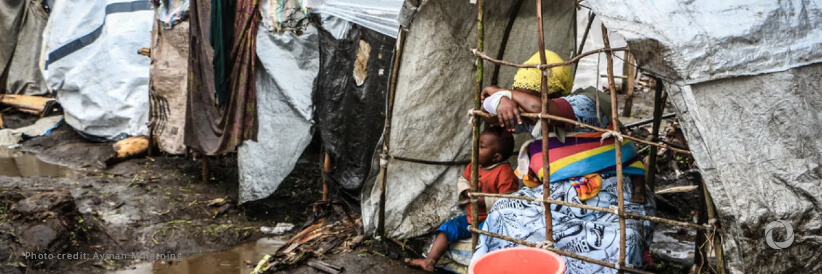The International Rescue Committee (IRC) is deeply concerned by the catastrophic deterioration of health services and humanitarian conditions, including an alarming cholera outbreak in North and South Kivu, Democratic Republic of the Congo, following widespread violence and looting.
In Kirotshe, North Kivu, nearly all health infrastructures have been destroyed or looted, with 29 out of 31 health centers left inoperable. This devastation has severely undermined the capacity of local health systems to respond to urgent medical needs.
Even where families are able to afford healthcare, this ongoing crisis is compounded by an alarming shortage of basic medical supplies, including delivery kits, dressing kits, personal protective equipment (PPE), and pharmaceuticals which are vital for maintaining adequate healthcare standards.
In addition to the collapse of medical infrastructure, the lack of proper water, sanitation, and hygiene (WASH) facilities is exacerbating the humanitarian crisis. Waste management systems, latrines, and showers remain inadequate, posing significant risks for the spread of diseases like cholera and further undermining efforts to curb preventable deaths.
On March 9, health authorities reported 242 cases of cholera and 10 deaths in the Ruzizi and Uvira health zones over the past week. The Ruzizi cholera treatment center is facing a severe shortage of supplies, and the constant influx of patients is further aggravating the situation. The epidemic is spreading rapidly through the community. In North Kivu, the authorities report an increase of almost 40% in cholera cases compared with the previous week. In less than a week, more than 650 cases have been recorded. The city of Goma and the health zones of Nyirangongo and Kirotshe are the hardest hit.
In order to address the cholera outbreak, IRC has deployed water, sanitation, and hygiene services in Goma and Kahele, aimed at improving access to drinking water and sanitation services for vulnerable communities.
Freddy Malembe, IRC Senior Emergency Coordinator, said: “The destruction of health facilities and the resulting scarcity of medical resources are pushing communities into a dire situation. People who rely on these services for their survival are being left without the care they need, and this is only worsening an already fragile health situation. The healthcare system is on the brink of collapse, and the people of Kirotshe and Minova need urgent assistance to prevent a full-scale humanitarian disaster. The humanitarian situation in the DRC is another example of why it is so critical for donors to ensure local responders have the resources needed to mitigate suffering and prevent further loss of life. The IRC is committed to continuing its efforts in supporting vulnerable communities in the DRC. Now more than ever, we urge access to aid barriers to be removed and warring parties to cease hostilities in order to prevent further loss of life.”

